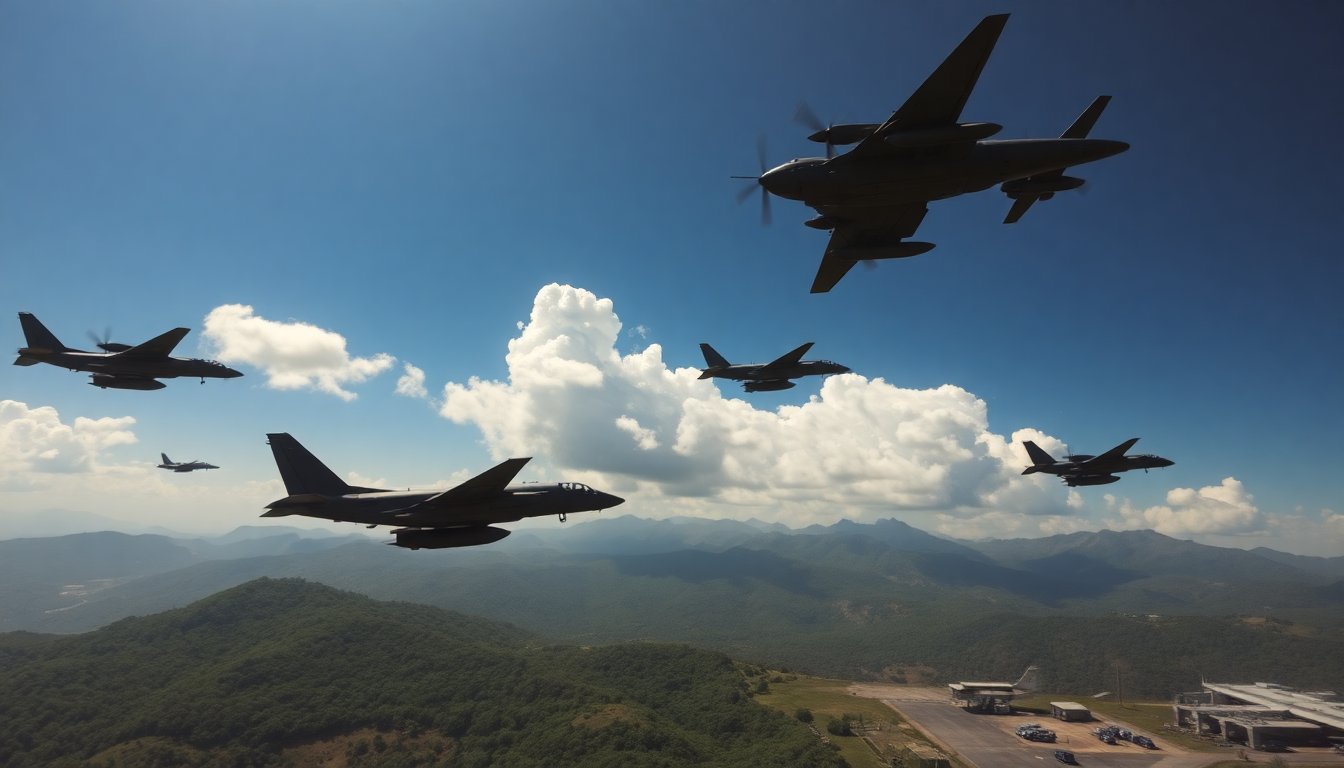Table of Contents
In light of escalating military tensions surrounding Venezuela, the Federal Aviation Administration (FAA) has issued a warning for pilots. This advisory follows increased pressure from the U.S. government on Venezuela and a notable rise in military activity in the area.
The situation in Venezuela has attracted significant attention from international observers, particularly as the U.S. has bolstered its military presence. The FAA’s notice serves as a critical reminder for pilots to remain vigilant when flying in this volatile airspace.
Understanding the implications of the FAA’s warning
The FAA’s cautionary statement is rooted in the growing instability in Venezuela, where political and military tensions are escalating. Pilots flying over this region are advised to maintain heightened awareness and readiness to alter their flight paths if necessary.
This advisory reflects broader concerns about safety in areas where military activity is pronounced. The FAA’s notice is part of a larger framework of regulations designed to protect aviation operations from potential threats, ensuring pilots have the latest information to make informed decisions.
Military presence and geopolitical ramifications
The increase in U.S. military presence in the region is a direct response to the deteriorating situation in Venezuela. As the U.S. government intensifies its efforts to influence outcomes in the country, the implications for air travel become increasingly significant. The FAA’s advisory is not merely a precaution; it signifies the seriousness of the geopolitical climate.
With the potential for military engagement or conflict, pilots must be prepared for unexpected developments. The FAA’s warning highlights the need for flexibility in flight planning, as safety must always be a priority in aviation.
What pilots need to know
For pilots operating in or near Venezuelan airspace, the FAA’s guidelines emphasize the importance of thorough pre-flight planning. Understanding the dynamics at play in the region can substantially enhance safety during operations.
In addition to staying current on advisories from the FAA, pilots should also consult with their flight operations teams to assess the best strategies for navigating this heightened-risk environment. The advisory serves as a reminder of the unpredictable nature of international air travel, especially in politically unstable regions.
Preparing for potential changes in flight patterns
The recommendation to exercise caution while flying over Venezuela includes being prepared for potential changes in flight patterns due to evolving airspace restrictions. Pilots are encouraged to stay informed about temporary flight restrictions (TFRs) and other regulatory updates that may arise as the situation develops.
Furthermore, maintaining open communication with air traffic control (ATC) is essential. ATC can provide real-time updates and guidance, helping pilots navigate safely through or around areas of concern.
The situation in Venezuela has attracted significant attention from international observers, particularly as the U.S. has bolstered its military presence. The FAA’s notice serves as a critical reminder for pilots to remain vigilant when flying in this volatile airspace.0


